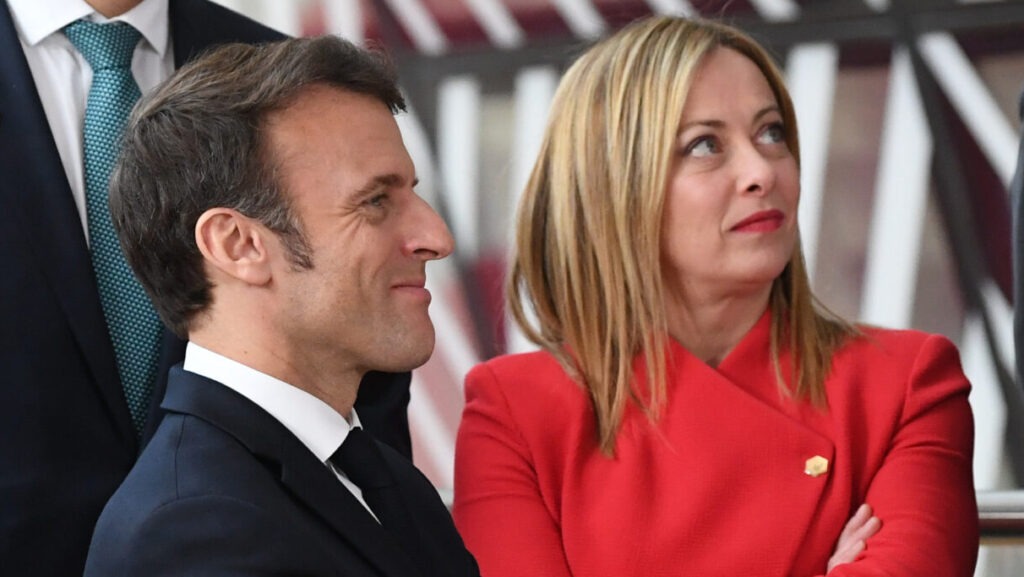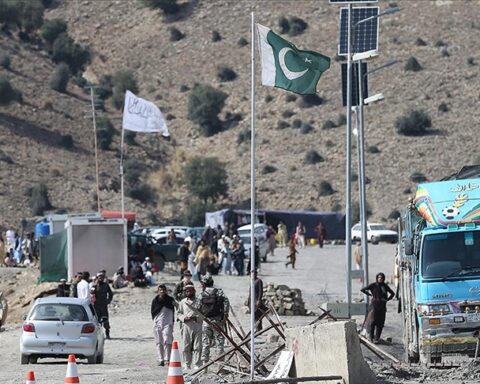There was a time when the stereotype was simple: Italy was Europe’s perennial bad boy, staggering from one debt crisis to the next, its governments disintegrating before the ink on their investiture orders even had a chance to dry. France smiled in the radiance of its assumed stability—the Gaullist Constitution of 1958 gave her president a somewhat authoritative executive power; she enjoyed a solid fiscal situation and a tradition of centralism that, allied with an almost monarchical presidency, kept the chaos of the earlier 4th Republic at bay.
How quickly fortunes shift: as reported by TradingEconomics.com, the yield on the Italian 10-year government bond is now within close vicinity of the yield on the French equivalent; as of September 29th, the Italian bond paid 3.575%, while the French yield was 3.542%. Now it is Italy, led by Giorgia Meloni, that exudes composure and credibility, while Emmanuel Macron is in charge of a nation careening towards chaos, its institutions unraveling, its finances hanging by a thread, and its society on fire. It is France, now, that seems on the hedge of its own “Anni di piombo.”.
The numbers speak for themselves. Italy, whose deficit was once shorthand for fiscal extravagance, is set to return to European budgetary discipline. The Rome budget for the current year is a deficit of nearly 3.3% of GDP, well on the way to the levels demanded by Brussels. France, by contrast, is looking at an astronomical 5.5% fiscal hole this year, with promises of adjustment pushed back to 2029, so far in the future as to sound utterly irrelevant. Investors now give French bonds the same risk category as Rome’s. Fitch’s downgrade of France and upgrade of Italy only served to ratify what the markets had already divined: France is cracking, while the former ’sick man’ of Rome is being prodded onto his feet.
And yet the about-face cannot be accounted for on economic grounds. Leadership matters—it is here that the gulf is most brutal. Meloni, who was previously derided as a parochial and inexperienced nationalist, has illustrated discipline and grit that Italy lacked for generations. She has kept her coalition together, managed Brussels without capitulating to it, and offered a sense of stability rare in Italian politics. In doing so, she has restored a measure of self-assurance—domestic and global—that Italy had lost to decades of revolving-door premiers and technocratic caretakers. It is no wonder Italians are pleased.
Macron, conversely, has achieved the reverse trick: turning the Fifth Republic, normally equated with executive gravitas and political calm, into the stage of permanent chaos. Five prime ministers in under two years, a presidency that governs by constant improvisation, and a National Assembly divided beyond recognition. The fake Jupiterian allure he once boasted about has evaporated. And all that is left standing is an exhausted leader, unable to form alliances, isolated and inconsequent, perched atop a system becoming increasingly referred to as ’Italianized’—a bitter irony, given the contrast now between the two countries’ fortunes.
France’s decline is not merely institutional. It is also social. This can be seen in the rage that festers on its streets and in the disintegration of the body politic. Initially sold as a cool, young, reformist centrism, Macronism has become a fragile technocracy divorced from ordinary life, closed within its bo-bo Parisian bubble and unable to understand—or, indeed, communicate with—real France. The center ground Macron claimed to embody is being erased, and with it the legitimacy of the ruling elites of the French Republic. If Meloni’s Italy shows how a maligned ‘populist’ can consolidate and govern, Macron’s France shows how a centrist golden boy can squander his mandate and leave nothing but chaos behind.
None of that is to deny Italy’s issues. Its debt inventory remains gigantic. Its demography is a mess. Its constitutional order, despite the abnormal normalcy bred by the prime minister, remains dangerously prone to confusion and institutional conflict. Meloni has a long road ahead of her. But in politics, perception is its own form of reality. Today, Italy has an air of stability and France an odor of drift. Meloni will be able to convincingly argue to have steadied Italy and restored its power in Brussels; Macron will struggle to be able to argue any legacy other than disillusion and disarray. When he is finally gone, he will not be missed.
What history will record, then, is not the irony but the lesson. Nations rise and fall not by fate but by leadership. Meloni’s Italy proves that even a country long dismissed as ungovernable can, with determination and discipline, regain control of its destiny. Macron’s France proves that arrogance, detachment, and improvisation can undo even the strongest of political architectures. Italy’s ascent will be remembered as Meloni’s achievement. France’s descent will be Macron’s legacy.






